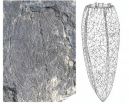(Press-News.org) Researchers have found that increasing ocean temperatures due to climate change will soon see reefs retaining and nurturing more of their own coral larvae, leaving large reef systems less interconnected and potentially more vulnerable.
"We found that at higher temperatures more coral larvae will tend to stay on their birth reef," says the lead author of the study published today, Dr Joana Figueiredo from the ARC Centre of Excellence for Coral Reef Studies (Coral CoE) at James Cook University.
"This is good news in an otherwise cloudy picture for isolated reefs, because in the future they will be able to retain more of their own larvae and recover faster from severe storms or bleaching events," she adds.
Professor Sean Connolly, also from the Coral CoE, explains that while more coral larvae will stay close to their parents, fewer will disperse longer distances, leaving reefs less connected.
"The loss of connectivity can make reef systems such as the Great Barrier Reef more vulnerable," he said.
"So interconnected reef systems that depend on the recruitment of coral larvae may take more time to recover after a disturbance, such as a cyclone, because fewer larvae will disperse from other reefs to the disturbed reef."
Professor Connolly adds that weaker connections between reefs means warm-adapted corals, such as those in the northern Great Barrier Reef, may take longer to expand their ranges to the south.
Similarly for isolated reefs, Dr Saki Harii from the University of the Ryukyus says, "While isolated reefs can retain more of their own larvae, this also leaves them with fewer possibilities to change their species composition to adjust to climate change."
Professor Andrew Baird from the Coral CoE says the implications of the research present management with both challenges and opportunities.
"Our results demonstrate that global warming will change patterns of larval connectivity among reefs. On a positive note, the stronger link between adults and recruits means an even greater benefit if we reduce local threats such as dredging and fishing methods that can damage corals," Professor Baird says.
Nevertheless, he explains, "This does not reduce the need for global action on climate change."
INFORMATION:
PAPER & IMAGES
'Increased local retention of reef coral larvae as a result of ocean warming' by Joana Figueiredo, Andrew H. Baird, Saki Harii and Sean R. Connolly appears in Nature Climate Change.
(The full paper and additional images are available on request)
CONTACTS
Dr Joana Figueiredo, Coral CoE, (and now at Oceanographic Center at Nova Southeastern University), +1 594-262-3638, jfigueiredo@nova.edu
Prof Sean Connolly, Coral CoE, (07) 4781 4242, sean.connolly@jcu.edu.au
Prof Andrew Baird, Coral CoE, (07) 4781 4857, andrew.baird@jcu.edu.au
Dr Saki Harii, University of the Ryukyus, +81-980-47-6073, sharii@lab.u-ryukyu.ac.jp
Jenny Lappin, Coral CoE, (07) 4781 4222, jennifer.lappin@jcu.edu.au
Melissa Lyne, media liaison, 0415 514 328, melissa.lyne@gmail.com
More coral babies staying at home on future reefs
2014-04-29
ELSE PRESS RELEASES FROM THIS DATE:
Stem cell therapies look promising for heart disease
2014-04-29
Stem cell therapies work as a complement to standard treatments, potentially cutting the number of deaths after a year, suggests evidence from the latest Cochrane review: Stem cell therapy for chronic ischaemic heart disease and congestive heart failure. Taking stem cells from a patient's bone marrow and injecting them into their damaged heart may be an effective way to treat heart disease.
The new review, published today in The Cochrane Library, uses data involving 1,255 people from 23 randomised controlled trials, where all participants received standard treatments. ...
Microfluidic technology reveals potential biomarker for early pancreatic cancer
2014-04-29
ANN ARBOR, Mich. – Cancer cells are on the move in the bloodstream in the very early stage of pancreatic cancer, and can be detected before cancer is diagnosed, according to research by the University of Michigan Health System.
In a study of 51 patients, researchers used a state-of-the art microfluidic device to capture circulating pancreas epithelial cells in 33 percent of patients with early pancreatic lesions and no clinical diagnosis of cancer.
The findings, published in Gastroenterology, suggest that circulating pancreas cells (CPCs) seed the bloodstream before ...
Coral reefs provide potent new anti-HIV proteins
2014-04-29
SAN DIEGO (April 29, 2014) – Researchers have discovered a new class of proteins capable of blocking the HIV virus from penetrating T-cells, raising hope that the proteins could be adapted for use in gels or sexual lubricants to provide a potent barrier against HIV infection.
The proteins, called cnidarins, were found in a feathery coral collected in waters off Australia's northern coast. Researchers zeroed in on the proteins after screening thousands of natural product extracts in a biorepository maintained by the National Cancer Institute.
"It's always thrilling when ...
NCI, NCRI and EORTC outline risk-assessment approach for biomarker-driven cancer clinical trials
2014-04-29
In an article published in The Lancet Oncology, an NCI (US National Cancer Institute), NCRI (UK National Cancer Research Institute), and EORTC (European Organisation for Research and Treatment of Cancer) working group outline a practical risk-management approach for effective integration of biomarkers into cancer clinical trials. Their work provides the international community with a set of common principles by which biomarkers can be integrated into clinical trials, exchange of data can be facilitated, quality promoted, and research accelerated while simultaneously respecting ...
Mobile users may not buy into instant gratification cues
2014-04-29
Gimmicky contest ads and flashy free-prize messages may be an instant turnoff for mobile users, according to Penn State researchers.
In a study, a tempting offer of a free prize drawing for registering on a mobile website led users to distrust the site, said S. Shyam Sundar, Distinguished Professor of Communications and co-director of the Media Effects Research Laboratory.
Sundar said that in an increasingly information-loaded world, people tend to lean on cues, such as icons and messages, for decision-making shortcuts, called heuristics. However, some cues may elicit ...
Widespread tetraradial symmetry among early fossil sponges
2014-04-29
Sponges are usually considered to be the oldest living animals, having evolved before all other groups. The simplicity of their body structure and tissue organization has for many years made them candidates for the ancestral group of animals, and they have long been regarded as our best illustration of what the earliest animals would have looked like. This has been supported by genetic analyses, which suggest that sponges branched from other animals a very long time ago, deep in the Precambrian. Until recently, most zoologists believed that sponges were little more advanced ...
Dampening of positive feelings found to predict postpartum depressive symptoms
2014-04-29
A new KU Leuven study shows for the first time that the dampening or suppression of positive emotions plays an important role in the development of postpartum depression. This has implications for the treatment of depressed mothers.
We often forget that depression is characterised by both negative feelings and a lack of positive feelings. Researchers suspect that this may have to do with the way depression-prone individuals deal with positive or happy feelings. These individuals downplay or suppress positive feelings through a cognitive response style called dampening. ...
New research shows increasing ocean temperatures affecting coral reefs
2014-04-29
FORT LAUDERDALE-DAVIE, Fla. – It seems that coral reefs are experiencing something their human counterparts have been for years – a shrinking "empty nest" syndrome.
That's right – researchers have found that increasing ocean temperatures due to climate change will soon see reefs retaining and nurturing more of their own coral larvae, leaving large reef systems less interconnected.
The study brought together an international group of researchers from NSU's Oceanographic Center; the Australian Research Council Centre of Excellence for Coral Reef Studies and the School ...
Stress research in therapy dogs reveals animals' needs
2014-04-29
So-called animal-assisted therapy is being used increasingly often to treat physical and mental diseases in man. "For stressed persons, animals may serve as "social ice-breakers" and thus motivate them to enroll in therapy in the first place," says Lisa Maria Glenk, the lead author of the study. Scientific investigations on animal-assisted therapy do exist, but these have been largely confined to studying the effects of such therapy on man.
Lisa Maria Glenk conducts research at the Department of Comparative Medicine at Messerli Research Institute. She is a pioneer in ...
Drug monitoring information improves regimen adherence, Carnegie Mellon researchers say
2014-04-29
PITTSBURGH—Most people want to take mediations as prescribed, even if they sometimes need a little help remembering. For them, an automated system that monitors drug taking and provides feedback after the fact may be more useful than one that nags people when it is time to take a pill, researchers at Carnegie Mellon University say.
In a 10-month study of such a system in the homes of older adults with chronic health problems, the researchers found that adherence to a medication regimen improved when people had ready access to a digital display of their medication-taking ...



